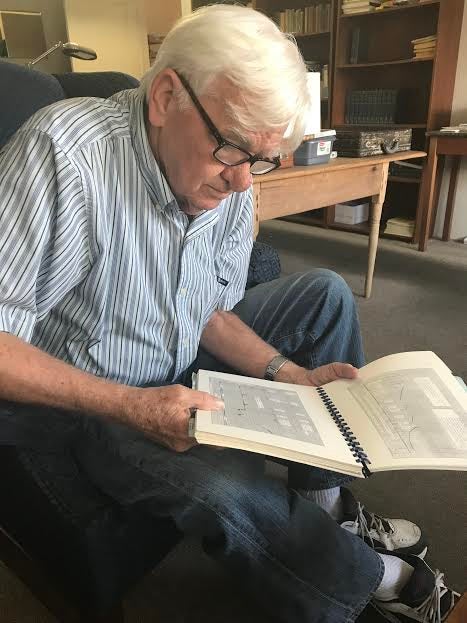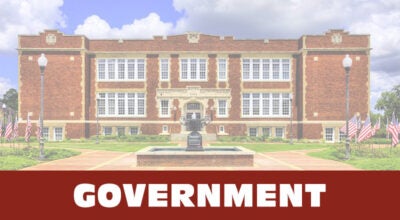In wake of 50th anniversary moon landing, Ward shares experience working with NASA
Published 12:00 am Thursday, July 25, 2019
While Americans are celebrating the 50th anniversary of the moon landing, a local shared his experiences working on the predecessor project to Apollo 11.
In 1953, Wyley Ward was drafted into the Army and quickly started to rise in the ranks.
“I never gave any thought of going to college before graduating from high school,” Ward said. “I knew that I was subject to being drafted into the Army, and I even thought of enlisting, but the Korean War was then in full swing, and I decided to wait for the draft. In June of 1953, I received a notice to report for a physical examination for the Army. After taking this examination in Montgomery, I was told that I had passed, and I could expect my draft notice in three or four months. In September of 1953, I received a letter from the Army recruiting officer in Andalusia.”
Ward was selected to join a special branch in the Army, known as the Army Security Agency.
“I asked the recruiting officer to explain what I would be doing in this agency; he told me that all he knew was that the work was classified. I asked the man how many men in Covington County were given this same offer, and he said two. He said the selection was based primarily on the results of the I.Q. test given with the Army physical examination.”
In 1954, Ward began Army Security Agency School at Fort Devens in Massachusetts.
“We could not start school until we received a top-secret clearance, which the FBI had been working on since we entered the Army,” Ward said. “I was assigned to a class in the Morse Code Intercept School. Only 17 out of the original 40 members of my Morse Code class graduated. When I graduated from the Army Security Agency School, I was promoted to private first class and given a master of specialty as a high-speed Morse Code interception operator. I was sent to Germany for two years.”
After returning from Germany, Ward began his education at Auburn University where he earned his bachelor’s degree in engineering.
After college, Ward worked for Pratt and Whitney Aircraft developing his skills with liquid hydrogen before being a private contractor with NASA to work on the Saturn S-IVB.
“When I began working at the Marshall Space Flight Center, I had four years of hands-on experience with liquid hydrogen,” Ward said. “Therefore I had as much if not more, experience with liquid hydrogen than anyone in the building. At that time, the MSFC and its contractors were very actively engaged in the preliminary design of upper stages for the family of Saturn vehicles, which used liquid hydrogen and liquid oxygen as propellants. The third stage of the Saturn V rocket had to coast for three orbits, or four and one-half hours, before it was reignited to boost the Apollo Service Module, Lunar Lander and the Apollo Command Module on their path to the Moon. During the four and one-half hour orbital coast period, the liquid hydrogen in the S-IVB stage had to be controlled and any boil-off had to be vented overboard to prevent tank over-pressurization.”
After switching over to work with Chrysler, Ward started working on another Saturn vehicle, which would set up for history to be made.
“We ran one more experiment with Saturn 203,” Ward said. “About five minutes after we lost contact with the vehicle after passing over the Cape, an unknown voice came on the open radio network at the HOSC, and it stated that ‘your vehicle is in 75 pieces,’ the network was quickly shut down before any more statements were made. We later found out that this was the U.S. Air Force, who had been privately tracking the flight. With this data, they were able to figure out what changes were necessary and what needed to be done so they could make it to the moon and back.”
Ward also was essential in designing the Skylab, which was the first space station launched and operated by NASA between May 1973 and February 1974.
Those interested in learning more about Ward’s career may hear his story at tonight’s Covington County Historical Society at 6:30 p.m., at the Andalusia Public Library.






